Join us to explore the complexity of mathematics teaching practice. The 2024 Elementary Mathematics Laboratory will be held June, 2024. Additional information coming soon.
Quicklinks: About | Workshops | Logistics | Registration | FAQ
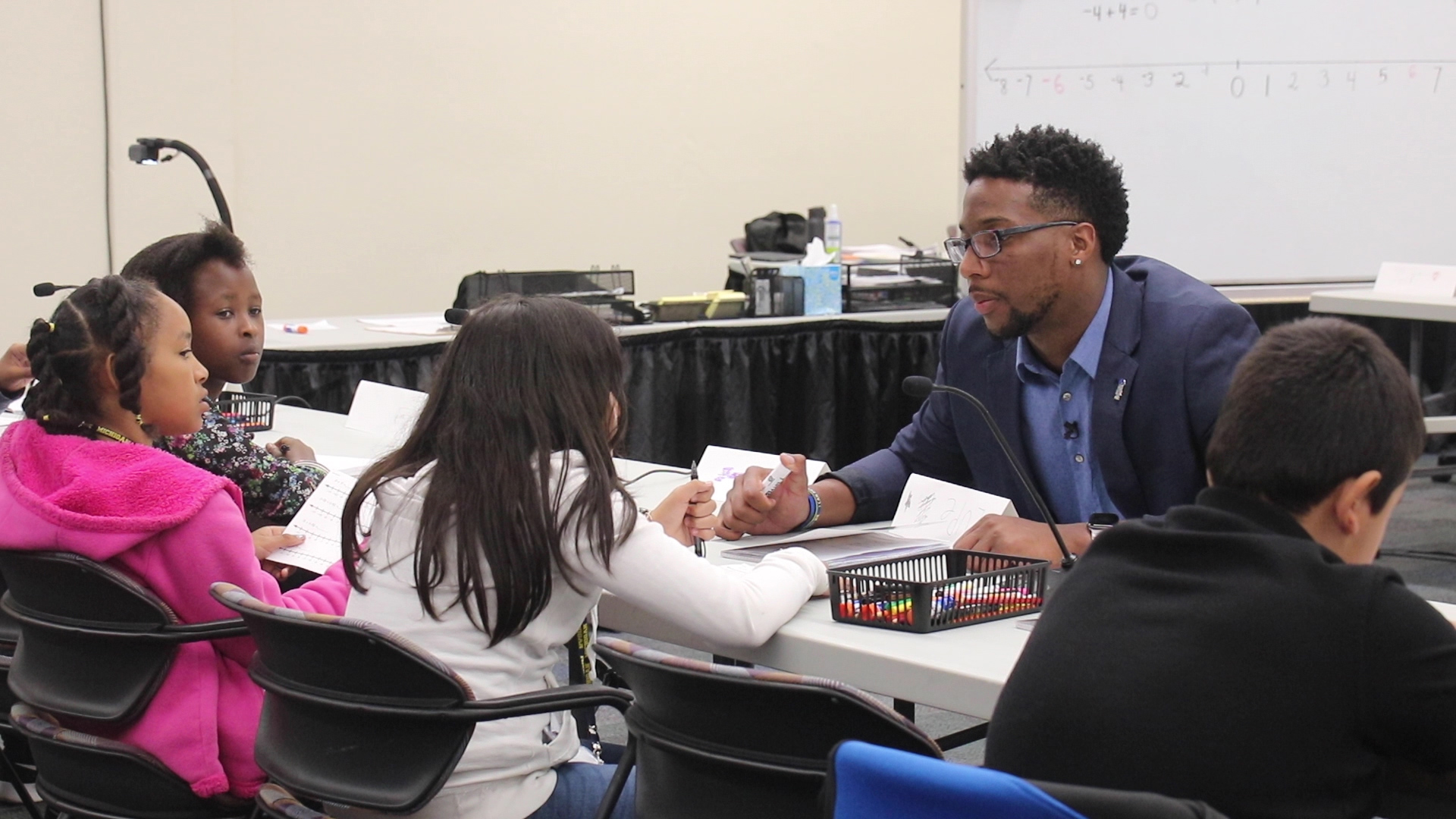
How do we engage students in mathematics in ways that value their thinking, broaden their ideas of what it means to do mathematics, and advance justice in classrooms? If you’re a teacher, education leader, or researcher interested in engaging with others in the close study of mathematics teaching practice, we hope you’ll join us for a week-long opportunity to explore the complexity of teaching and investigate and challenge what it means to use skillful teaching to disrupt patterns of injustice. Each day, participants will observe lower elementary children working on mathematics in a live, two-hour class. You will discuss what is happening in the class with other educators and with the teachers, Deborah Loewenberg Ball and Darrius Robinson, and participate in an afternoon workshop of your choice. In daily pre- and post-class discussions, we’ll unpack instructional decisions, examine mathematics content, and interrogate issues of equity in classrooms.
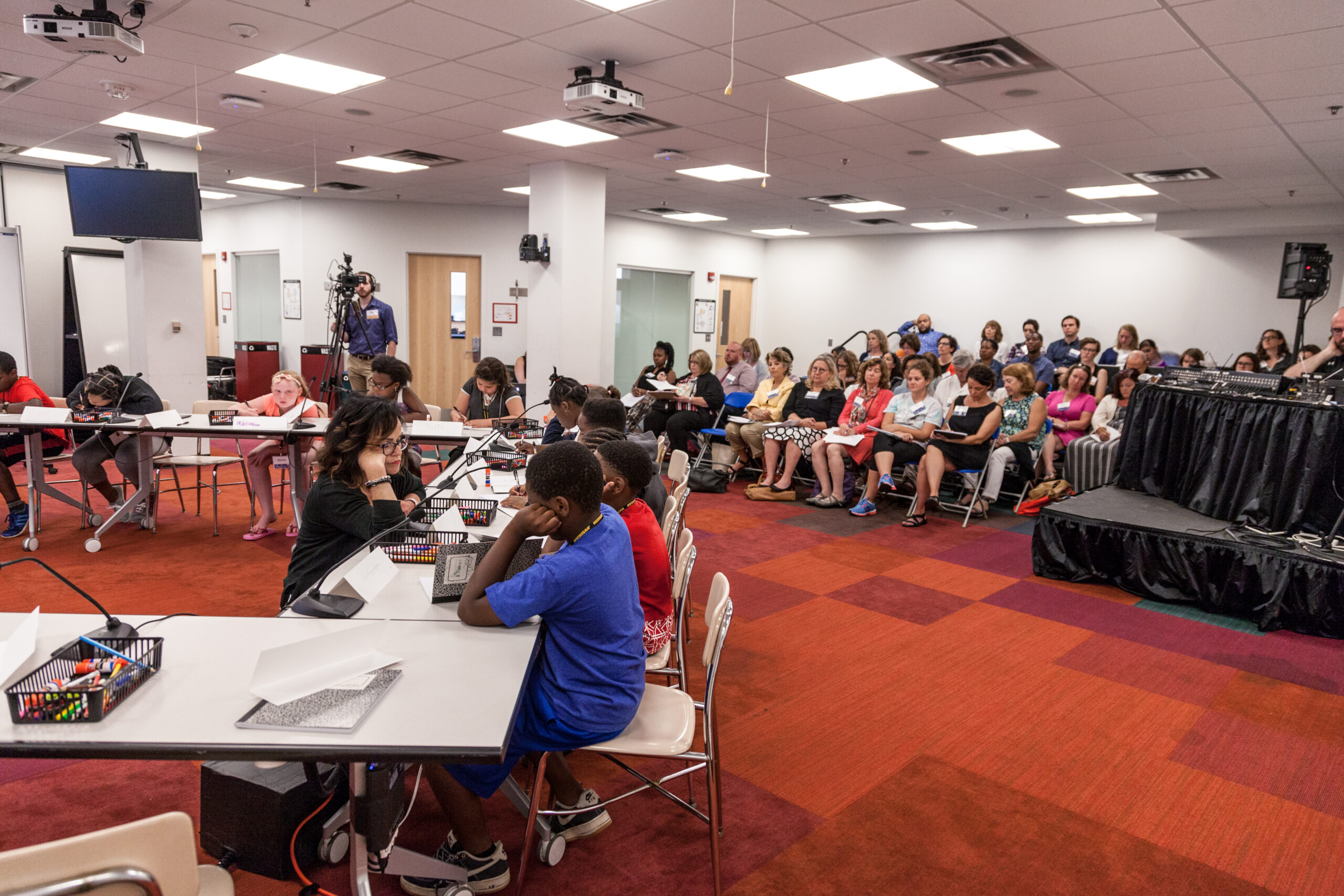
Observers have the rare chance to watch children learn from experienced teachers in real-time as the instructors lead lessons and respond and adapt in the moment to their students.
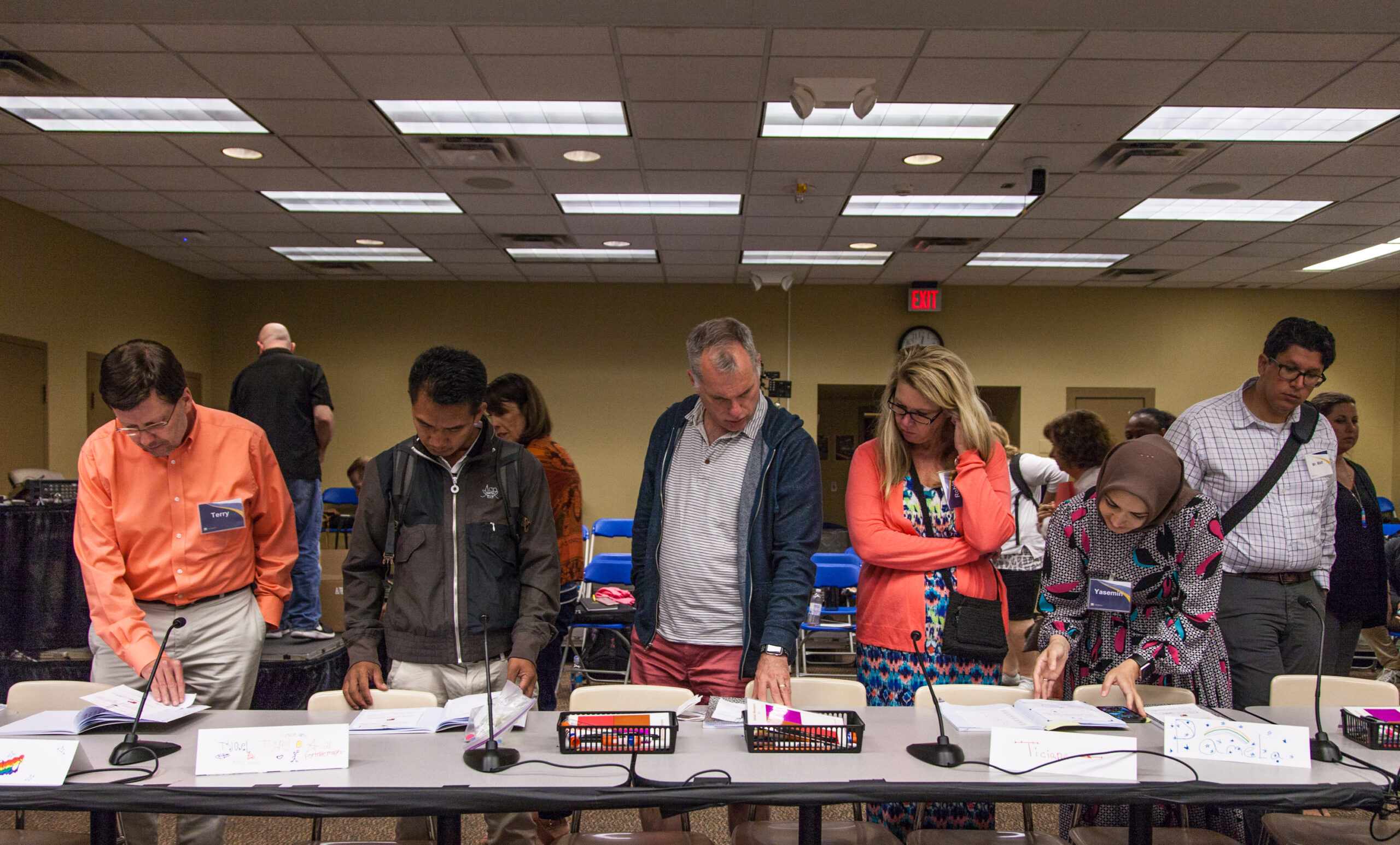
Public teaching is at the heart of our laboratory classes. Participants start each day with the instructional team in a “pre-brief” session before the class, in which they examine, discuss, and refine the day’s lesson plans and strategies for instruction. Attendees then observe the instruction and reconvene afterward for a debrief and to review student work.
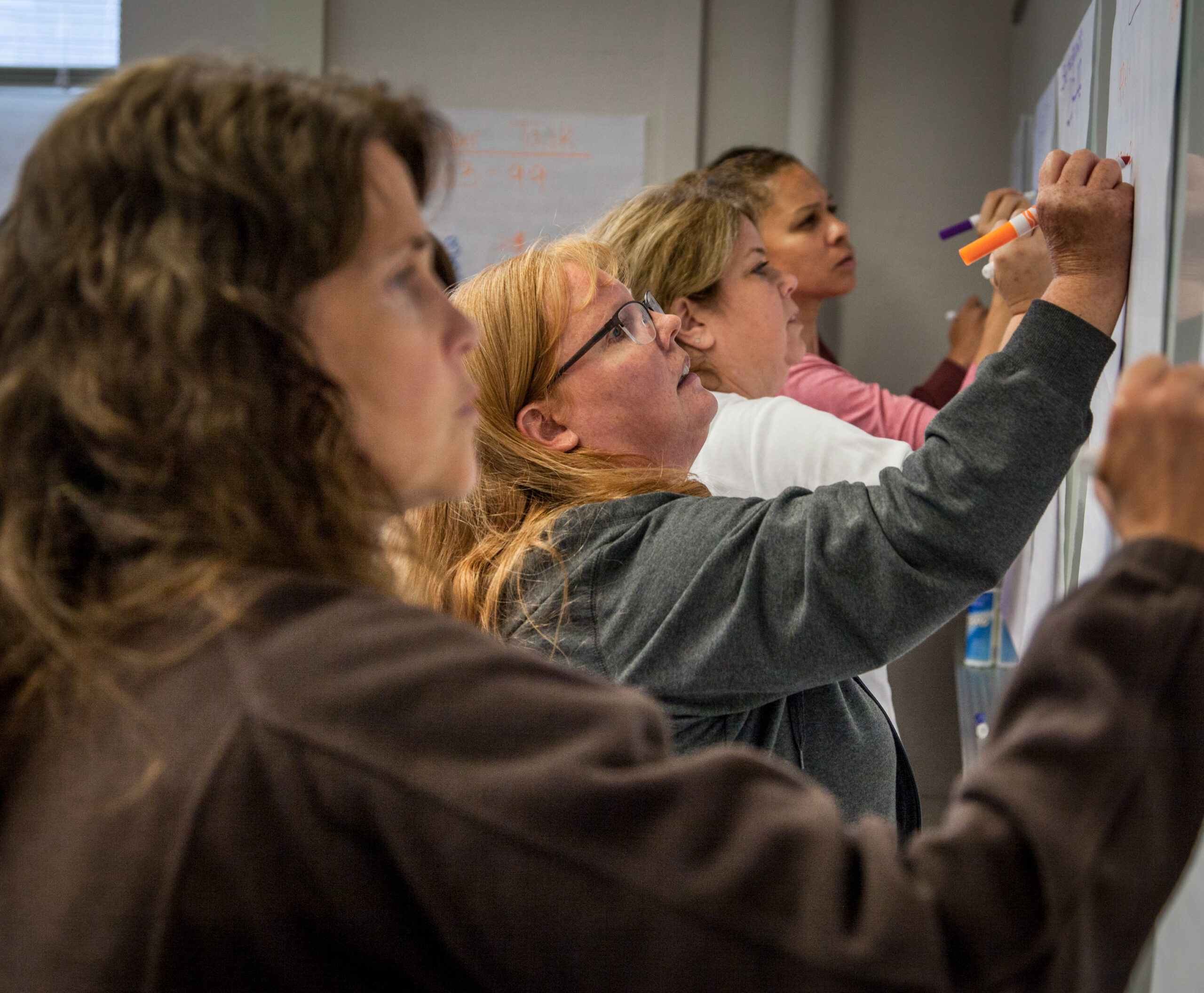
In addition to observing and engaging with public teaching, participants of the laboratory classes also select from a slate of workshops that support and extend the learning of equitable teaching practices. Some focus on the complexities of teaching and learning, while others center on the practices of teacher education, professional development, and school leadership that support teachers’ development.
Eliciting and interpreting student thinking is an essential skill for teachers, but can be particularly challenging to do with young children, who often know more than they can say. In mathematics in particular, the complex ways in which teachers must know content informs how successfully they are able to make sense of student contributions in order to see and build on their strengths. In this interactive workshop, teachers will work together to analyze videos, tasks, and student work to build on and practice their skills in eliciting and interpreting student thinking in mathematics, foregrounding sense-making, collaboration, and joy.
The first few weeks of school set the stage for learning for the year. Teachers work to get to know their new students, to determine what they already know and can do, and to introduce and establish norms and routines for discourse and work. This session will provide an opportunity for teachers to consider:
Of all the mathematical practice standards, building and critiquing mathematical arguments sounds straightforward. But what, exactly, is a good mathematical argument, particularly in elementary classrooms? What does it have to do with equitable teaching? And how do we teach students to develop their skill with this important practice? In this workshop, we will work toward supporting our students to build mathematical arguments by:
This session will provide a rich opportunity for instructional leaders to develop an understanding of several high-leverage practices. This workshop will focus on methods for observing and giving feedback on particular high-leverage practices, including strategies and protocols for productive dialogue around teaching practice. We will focus on issues of equity and access broadly, especially in this particular moment in time when the COVID-19 pandemic has further exacerbated the deep inequalities in educational access sowed by structural racism.
Coming soon
For questions about the laboratory class or professional learning workshops:
Nicole Garcia, TeachingWorks Associate Director, nmgarcia@umich.edu
For questions about registration, travel assistance, and policies: Kyana Taylor, kyanat@umich.edu
If an emergency arises while you are traveling, please call us at 734.255.3115.
Coming soon.
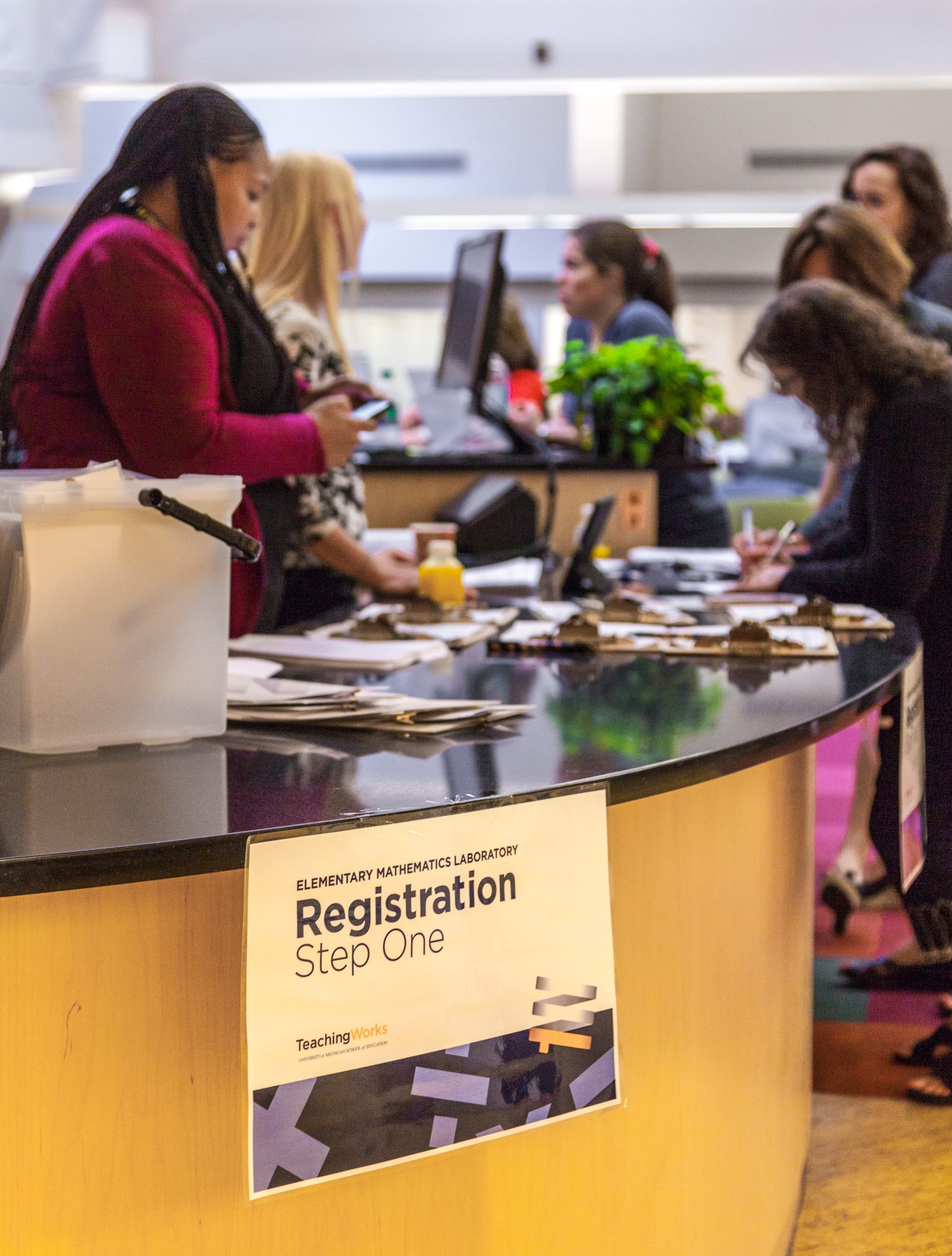
Registration information coming soon.
TeachingWorks reserves the right to cancel in-person, virtual, or hybrid training or workshops before the start. TeachingWorks staff will notify participants of cancellation via e-mail. Participants will be eligible for a full refund of their registration fee. TeachingWorks will not be held responsible for any expenses incurred due to the cancellation of an event, training, or workshop.
For a full refund (100%), participants must submit a written request to cancel or withdraw 30 days prior to the first day of the event (in-person or virtual). Fifty percent (50%) will be refunded for requests received 15 days prior. No refunds will be issued for requests received within seven (7) business days of the first day of the event or failure to submit the required documentation required for participation.
Anyone interested in education, education advocacy, or exploring the close study of teaching practice is welcome to attend the Elementary Mathematics Laboratory, including teachers, teacher educators, education leaders, policymakers, and researchers.
A laptop or tablet is required to access digital resources. No other supplies are required.
Business casual.
Your health and safety are important to us. We will evaluate appropriate COVID-19 precautions closer to the time of the event and communicate any requirements to attendees prior to the event.

© 2024 TeachingWorks. All Righst Reserved.